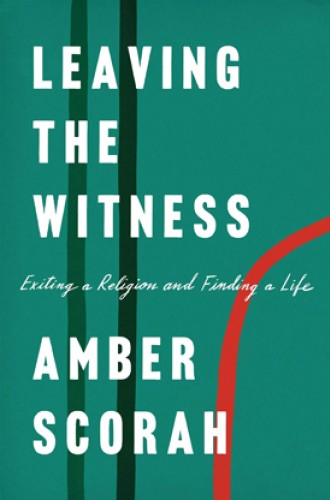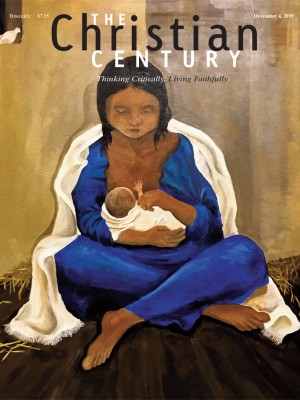A former Jehovah’s Witness tells her story
Amber Scorah’s memoir has a breathless quality that makes it compulsively readable.
A handful of spiritual story lines inevitably get repeated in life and literature. There’s the classic conversion story, in which one once was lost but now is found. And then there’s the deconversion story, in which the one who was presumably found finds herself outside her former faith. The current literary landscape is littered with deconversion stories. Disaffected evangelicals in particular seem to pick up the pen, compelled to bear witness to unbelief just as passionately as they once bore witness to belief.
I love a good deconversion story. They are, of course, often conversion stories in their own right: men and women seeing the light and finding the strength to remove themselves from religious communities that traumatized and subjugated them. Amber Scorah tells one such story. Her memoir, written in quick and spare prose, has an almost breathless quality to it, as if the narrator is so compelled to share her story she can scarcely be bothered to breathe between sentences. This makes for a compulsively readable book—and that’s even before considering the notable plot twists that set the author apart from her peers in the genre.
Read our latest issue or browse back issues.
Scorah’s religion of origin is a bit more consequential than your run-of-the-mill evangelical variety of Christian faith. Many would argue that Jehovah’s Witnesses are members of a cult. Scorah certainly comes to see it this way (although, at one point in the narrative, she equivocates: “I’m not 100% sure it’s a bad cult though”).
Quirks of the faith such as prohibitions against celebrating birthdays and receiving blood transfusions are not what might send the “cult” flags waving. Rather, it’s the comprehensive control the church wields over the minds and lives of its members. Witnesses are expected to forego higher education, dedicating themselves to studying church-approved literature and engaging in the door knocking for which adherents are so famous. Doubts aren’t exactly embraced by church leadership: Witnesses who openly question tenets of the faith are deemed apostates and likened to “gangrene” that must be “amputated,” or disfellowshiped.
All of this is to say that it’s a really big deal for a Jehovah’s Witness to leave. It took the curious combination of living in China and engaging in an extramarital affair to extricate Scorah from the church, and from her deeply unhappy marriage to a fellow Witness.
Scorah’s depictions of life as an undercover preacher in China are engrossing. She finds rich irony in the fact that she has more liberty in communist China than she ever did while living in comparatively free Canada under the thumb of the Jehovah’s Witnesses.
The podcasting gig Scorah took on as a cover for her missionary work became a portal to the world beyond her church and a conduit for relationships beyond fellow Witnesses and potential converts. A long-distance flirtation with a podcast fan evolved into an emotional and eventually physical infidelity, though it seems both were motivated less by lust than by a compulsion to rescue Scorah from the clutches of her church. She muses, “I had needed to commit this biblical sin to find my God-given freedom. I had needed to let someone in in order to get out.” The lover, for his part, was happy to play the role of liberating hero.
Scorah’s bewilderment at post-Witness life is palpable. Having been fully sheltered by the church and then fully anathematized by it, she finds the prospect of making a life on her own overwhelming. She moves to New York City, stumbles into a career, and falls in love. Six years after losing her religion she finally throws herself her first birthday celebration—and, poignantly, now has friends to invite to the party.
Just when Scorah finally seems to have found a life, her firstborn child dies during his first morning at daycare. Unlike the breathless quality of the previous 260 pages, Scorah seems preternaturally calm as she recounts the tragedy. The last chapter of the book reads as though written by a different person; one gets the sense that the rest of the book was written by a woman who had not known such harrowing grief. Suddenly, Scorah has a capacity to do more than recount and reflect on a fairly superficial level.
She wishes she could access hope in the midst of her grief, but she cannot.
Heaven as a solution is the stab in the dark that most people refer me to, and when I indulge in the thought of my boy somewhere cotton-like, white and near the sun, a place where one day I would go and scoop him up in my arms and hug him with every synapse in my brain and nerve ending in my body, it is the most comforting of them all. And, therefore, feels the most deceitful. What I did not know about the cost of being raised on myths is that it also makes it impossible to deceive oneself anymore.
Scorah may be bereft of hope, but she does locate love in the midst of her loss. Love, and brutally hard questions that no person of faith should ever be foolish enough to answer with even a modicum of certainty.







